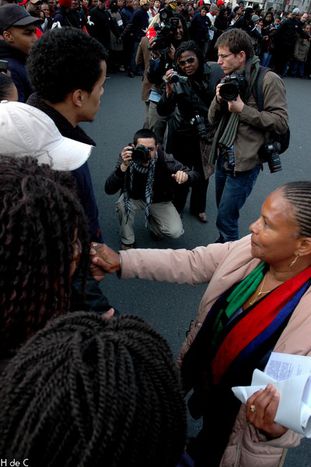
Martinique: European elections 'time to test the EU's social character'
Published on
Translation by:
 Eloise
Eloise
Malik Duranty, a young politics graduate at the University of Guyana and the Caribbean, on how the first effects of the credit crunch are being felt as far as the remote regions of the EU, the insular and dependent localities. Extract
In light of the topicality of the credit crunch, we should be afforded an official assessment. It is in the most remote areas that the first reproofs manifest themselves and it is here that we observe the first occurrences of social mobilisation as a direct result of the economic crisis on a micro level. It is in the French special member states ('régions ultrapériphériques', RUP), where, due to their relatively weak autonomous status, the strains of this spreading mobilisation are first felt. All this leads to a certain number of questions. Questions pertaining to the efficiency and implementation of the autonomy of the special member states.
The special member states have institutional and statutory particularities which demonstrate their spatial, geographical and historical disparity, as well as their insularity and remoteness from institutions. It is the EU that is the instigator of the principle of subsidiarity (whereby the decision making is delegated as much as possible to the inferior echelons within a hierarchical structure) which requires abilities relative to the social. The implementation of these public policies demand proximity, whether at a national or local level.
More social?
However, if we are to believe the debates at the European parliament, the distance between the institutions of the EU and the human realities of these community people is vast. For example, from November 2007 to June 2008, four judges of the European court of justice gave the rights of businesses priority over the rights of the employees. The European parliament has shown that, with regards to social matters, the EU’s equivocation is very real and can no longer go unnoticed. It appears that the EU will have grave difficulties in developing more socially.
Protests against the high cost of living and the demand for increased salaries in the French RUP will not allow the feelings of the people towards the EU to soften
Thus the protests against the high cost of living and the demand for increased salaries in the French RUP will not allow the feelings of the people towards the EU to soften. However, the topic of MEPs arrive is fast approaching in the European elections in June 2009. It will be the perfect opportunity to discuss the social character of the EU, as well as the role of parliament in the politico-administrative system of the EU.
Translated from La périphérie de l’Europe ressent « les premiers remous » de la crise économique


